Lessons from Billy Joel

I just finished watching And So It Goes, the HBO documentary on Billy Joel. I expected to enjoy the music—I’ve been a fan for years—but what surprised me was the honesty of his story. It wasn’t just entertainment. It was a window into struggle, relationships, and man’s search for joy.
Three things stood out to me.
First, struggles have to be faced.
Joel’s story is filled with them. Some self-inflicted—like his battles with alcohol and depression. Others were dealt to him, like a father who left when he was young, or a manager who quietly drained his bank account. Add to that a string of marriages that began strong but didn’t last. What I was reminded of is this: struggles don’t just go away. If we don’t face them, they turn into strongholds. Joel didn’t escape the scars, but he put the pain into song—and that was his way through.
Second, relationships matter. People matter. Trust matters.
What gripped me most was the story about his father. After Joel had already found success, he so...
Meet Joe Theismann
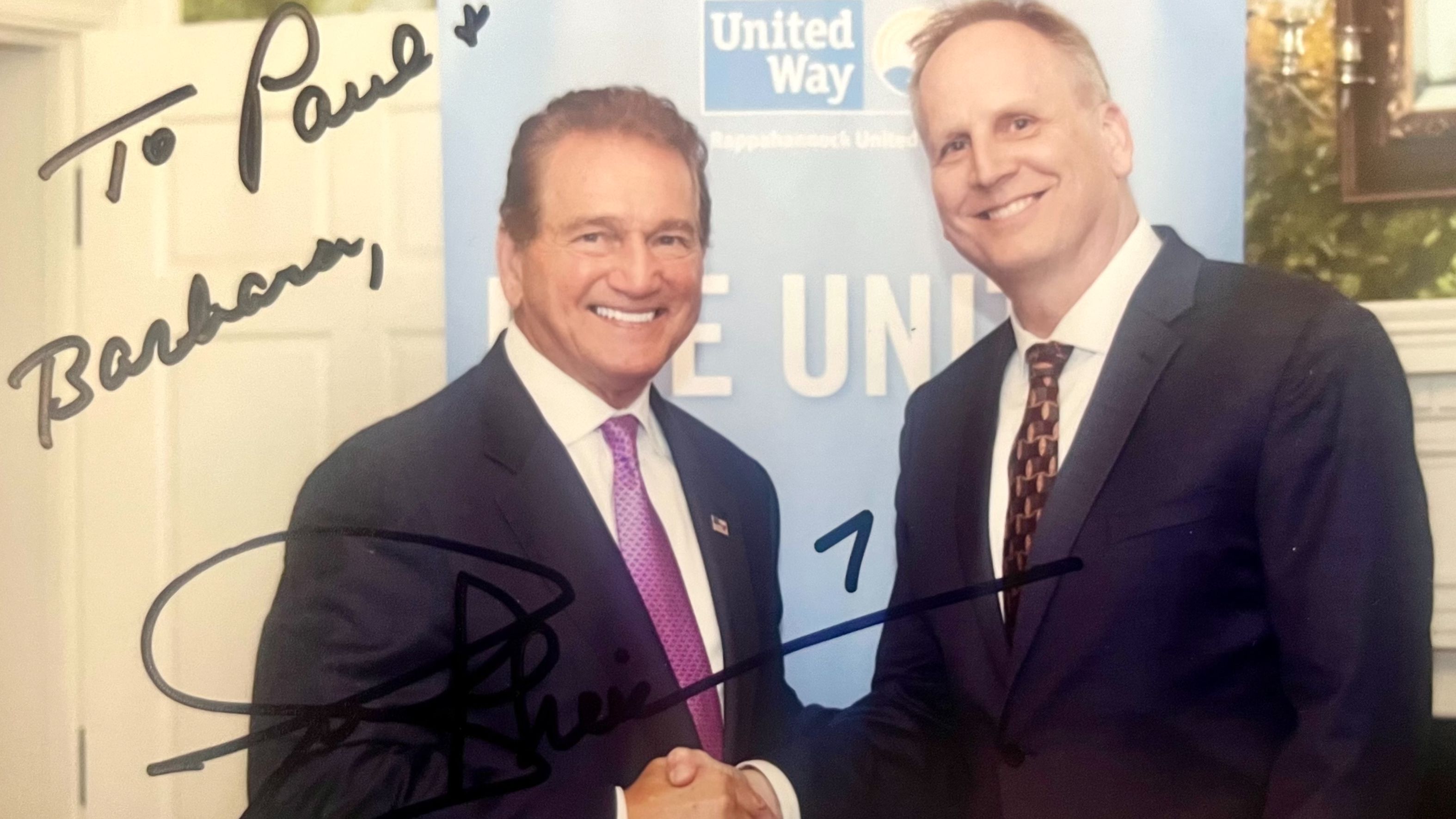
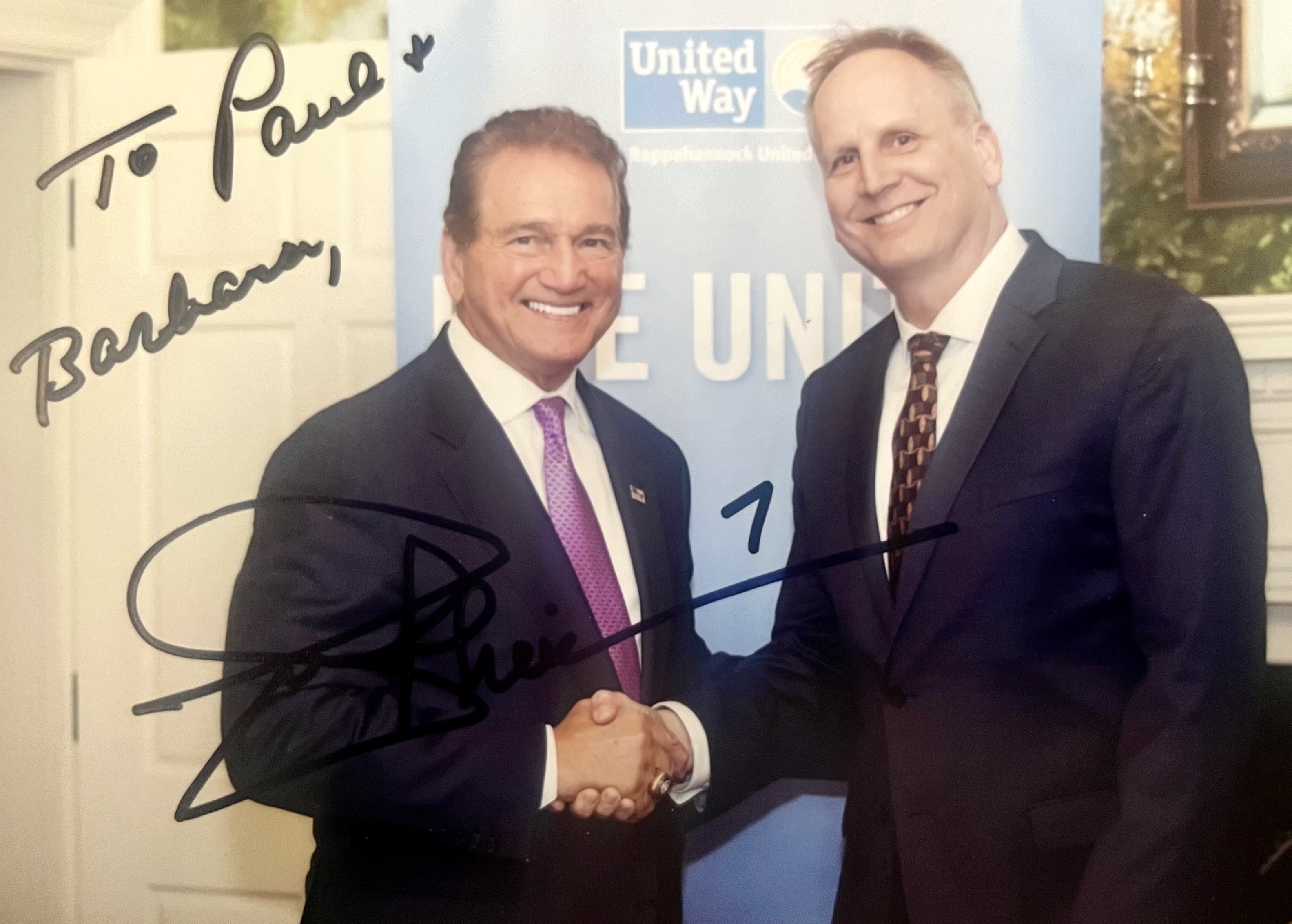
Last year I had the chance to meet Joe Theismann — the quarterback I grew up watching and cheering for when I was a young teen. He was at the heart of some of Washington’s greatest moments. Back then, Sunday games were a big deal in my house, and Joe was right in the middle of it all. Meeting him years later brought back a flood of those memories.
A Super Bowl champion, NFL MVP, two-time Pro Bowler, and one of the most respected leaders ever to wear a Washington jersey — Joe’s career speaks for itself.
In reflection, he said, “I was always told that I was too small, too skinny, too slow, not tough enough.” Then he added, “I never ever believed what people told me.” That belief fueled his journey, silenced the doubters, and built a career that still inspires.
What impresses me most, though, is how he handled life after a football tragedy.
On November 18, 1985, a horrific leg injury on Monday Night Football ended his playing career in an instant. Yet that night didn’t define him. He ...
Just Love Them
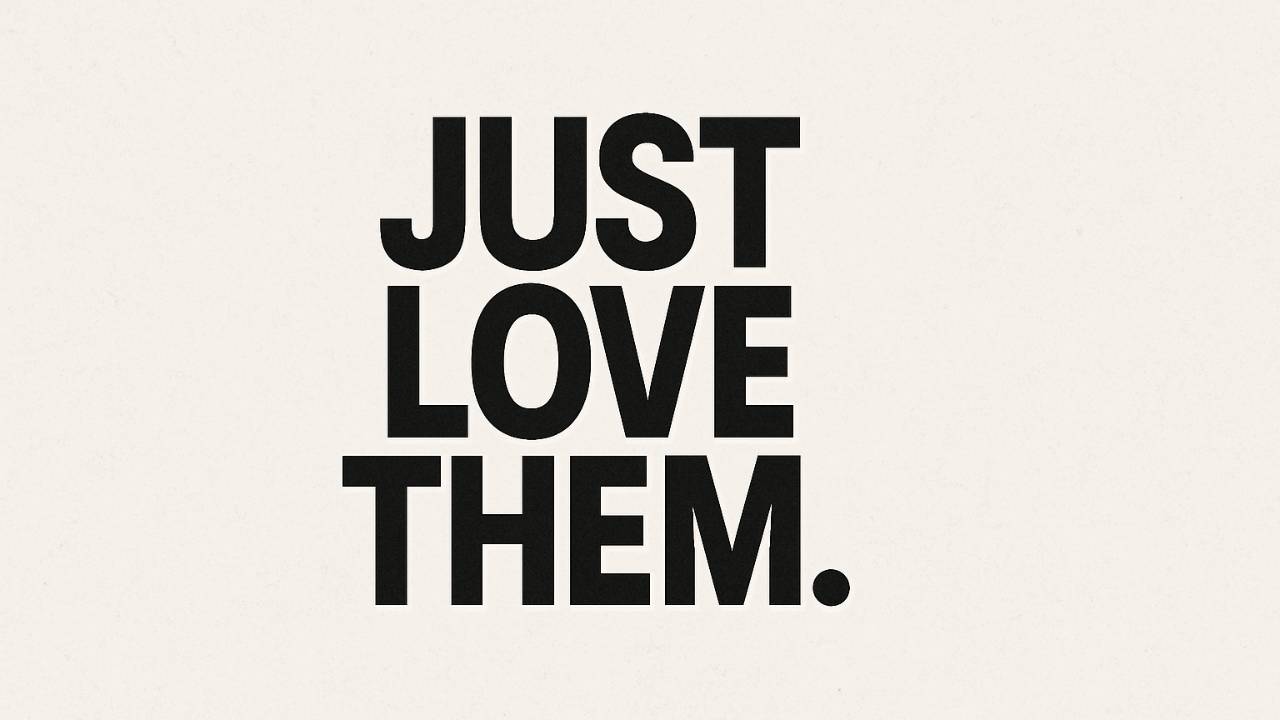
Read this on Substack
We’ve all been there—watching someone we love go through something hard, wanting to make it right, say the perfect thing, or pull them back. But sometimes, the answer isn’t solving— it’s one less letter...
It’s loving.
Not fixing them.
Not judging them.
Not rescuing them.
Just loving them.
That doesn’t mean staying silent.
It doesn’t mean pretending to agree.
And it doesn’t mean tossing out a passive-aggressive one-liner.
It means showing up—again and again—with a heart that says:
“You matter more than your choices or your circumstances. I’m here. I’m listening. I’m not going anywhere.”
Or this: “There’s nothing you can say or do that will make me love you any less.”
Jesus told a story about a shepherd who left the ninety-nine to find the one.
The one who wandered.
The one who got lost.
The one who chose their own path.
The shepherd didn’t bring punishment.
He brought presence.
That’s a different kind of love.
It doesn’t keep score.
It doesn’t retreat when ...
Put Your Boots On
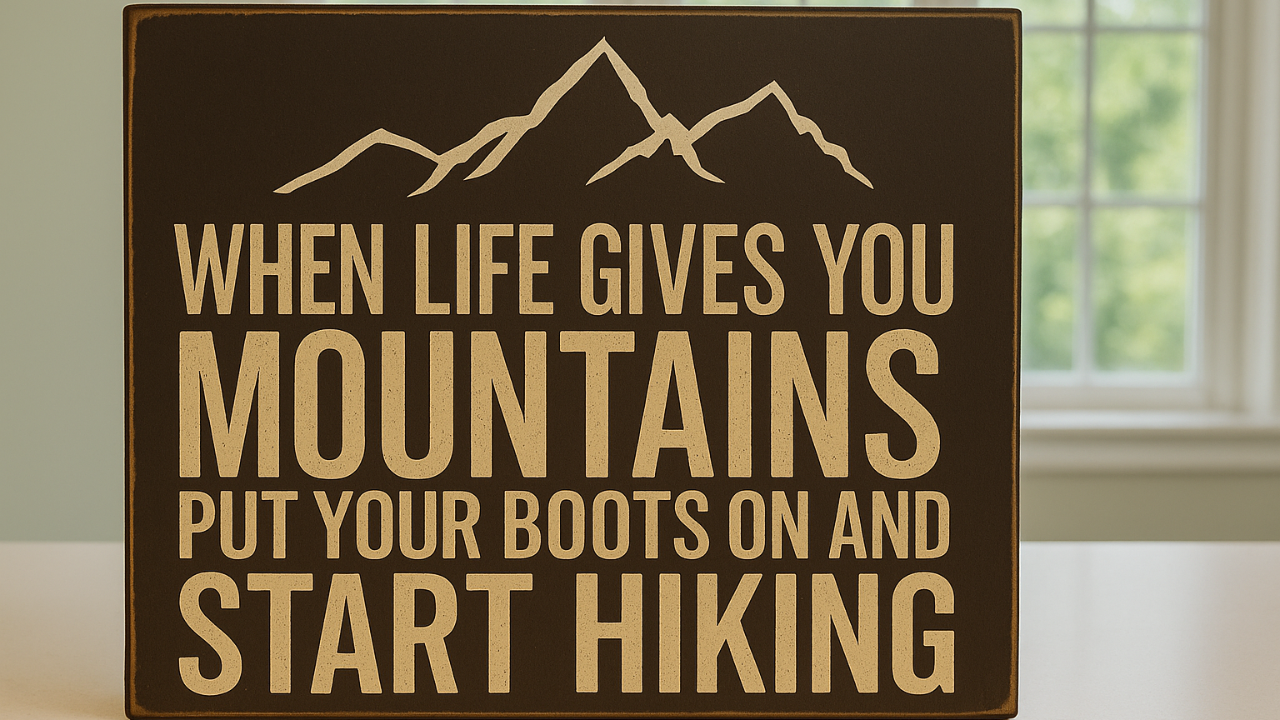
Life doesn’t always go according to plan.
Sometimes the battle isn’t just in the mind—it’s in the moment. The curveball you didn’t see coming. The setback you didn’t ask for. The mountain you didn’t sign up to climb. Sometimes, it’s even a new opportunity that scares you.
I know what that feels like.
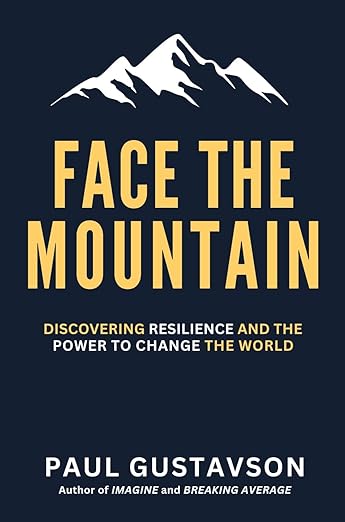 There have been seasons where I found myself at the base of a mountain I didn’t choose. A personal storm. A scary opportunity. A team struggle. Moments that tested more than my thinking—they tested my heart, my grit, and my faith.
There have been seasons where I found myself at the base of a mountain I didn’t choose. A personal storm. A scary opportunity. A team struggle. Moments that tested more than my thinking—they tested my heart, my grit, and my faith.
Those seasons rewired how I see adversity, purpose, and what it means to lead when life goes sideways.
That’s why I wrote Face the Mountain—to capture the full face of resilience, and how we’re built to endure.
This book isn’t theory. It’s not fluff. It’s real stories, real struggles, and a real framework for walking through hard things with resilience and hope.
It’s for anyone who’s ever asked:
-
Why this?
-
Why now?
-
How do I move forward when ...
It's Not Just a Motto…

You’ve seen it—etched on every U.S. coin. Four words. Easy to miss. Easy to say. Hard to live.
IN GOD WE TRUST.
Most see it as a patriotic phrase. A nod to history. But for me, it’s personal.
I wrote about this in Face the Mountain—because that phrase became real after I nearly lost my life. For a while after, I played it safe. Stopped dreaming big. Stopped being brave. Stopped pursuing hope.
Doubt crept in—and it’s a monster. It stops you cold. Sometimes the only way to beat it is to trust someone bigger than yourself.
Why not God?
Trust is easy when life’s smooth—when the path’s clear, the paycheck’s deposited, and the plan is on track. But real trust shows up when nothing’s certain.
IN GOD WE TRUST isn’t passive. It’s not soft. It’s not sentimental.
It’s a choice.
A stake in the ground when fear gets loud.
A step forward when everything in you says to turn back.
On life’s mountains, trust isn’t about being fearless—it’s about being faithful to the voice you follow.
Fear yel...
Make Meetings Matter

Stop Wasting Time: Use the MEETUPS Framework to Lead Meetings That Matter
Let’s be honest—most meetings miss the mark.
They lack purpose. They run long. They can wander.
And when it’s over, people are left asking: Why did we even meet?
But it doesn’t have to be that way.
What if your meetings became a strategic advantage?
That’s the power of THE MEETUPS FRAMEWORK—a simple, 7-step tool to help you lead meetings that drive clarity, connection, and action.
Introducing: M.E.E.T.U.P.S.
Each letter represents a key checkpoint to walk through before—or during—your meeting. Use it to stay focused, respect time, and move things forward.
M – Mission
Why are we meeting?
Every meeting needs a clear reason to exist. Define the purpose up front.
Ask: What’s the point?
E – Expected Outcome
What do we want to walk away with?
Decide what success looks like: a decision, an action plan, alignment, or something else?
Ask: What result are we aiming for?
E – Engagement
Who needs to be in ...
The Two Faces of Nature

Nature wears two faces.
One sings of peace—
a still breeze, a soft light,
dew on waking grass,
the quiet rhythm of a heart held by grace.
The other roars—
with wind, with flood, with force unbound.
It asks no leave. It spares no ground.
It simply comes.
Yet both are true.
And somehow,
if we face the storm
and cradle the calm,
we emerge recast—
not just scarred,
but steadied.
Not just shaken,
but rooted.
For in its fury, the wild unites—
neighbors become hands clasped in care,
hearts turn to prayer,
touched by grace.
And so we rise—
not just scarred, but stronger,
in the stillness where courage takes root,
learning nature’s dance together.
What Happened in Texas Touches Us All
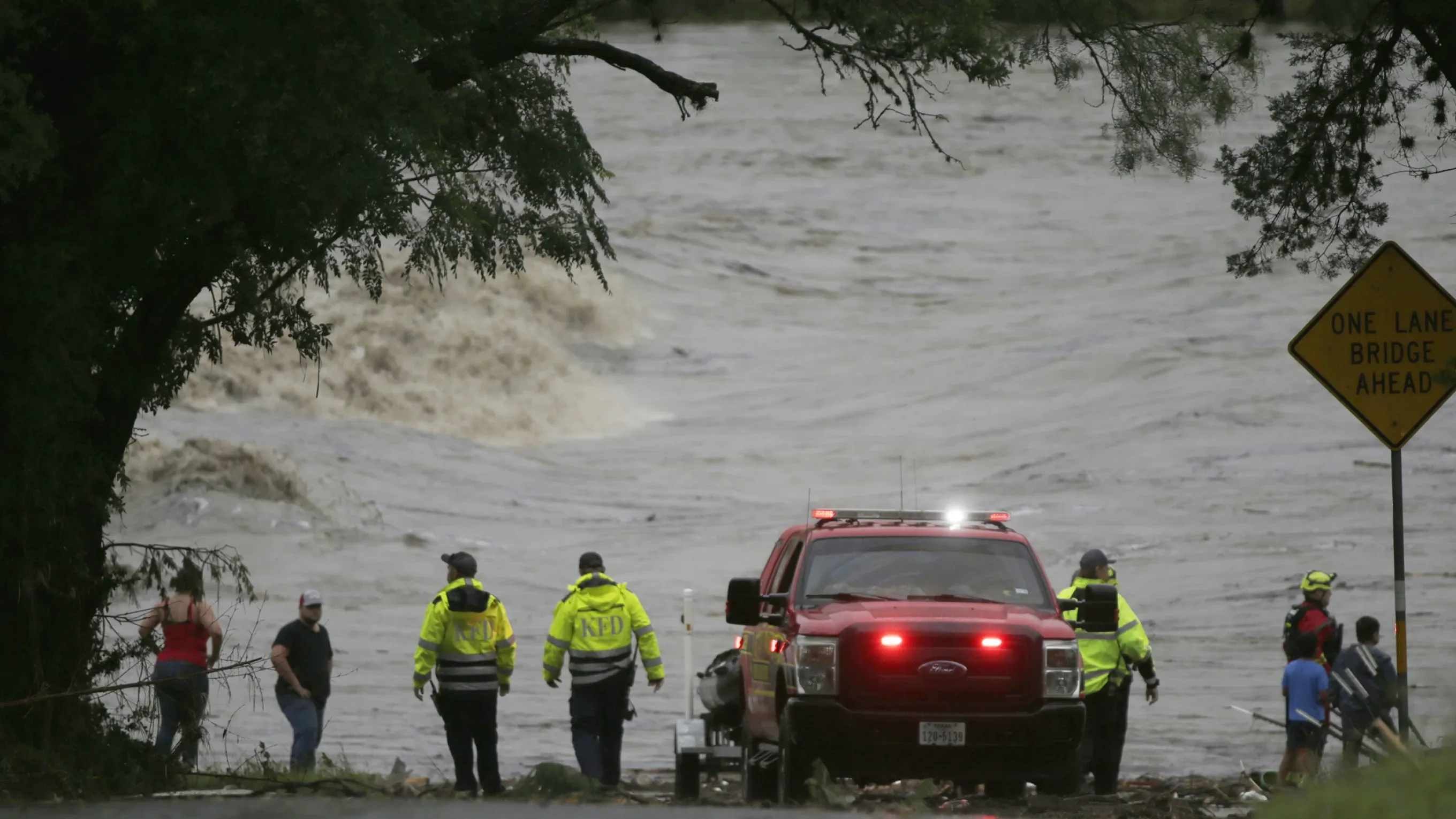
Today, my heart grieves for Texas.
As of July 6, 2025, at least 67 people are still missing—including 27 girls from Camp Mystic, a Christian summer camp, and others like campers and visitors unaccounted for in the holiday chaos—after a devastating July 4 rainstorm turned the Guadalupe River into a raging wall of water. Fifty-one lives have been lost. Homes vanished. Families shattered. A community overwhelmed by sorrow.
When I was a kid in Rio de Janeiro, I saw what a flood can do. One afternoon, rain hit hard, and water came rushing down the hillsides, turning streets into rivers. My family got trapped in a tunnel as a mudslide came down. I remember the darkness. The fear. The silence that followed. We made it out. That moment never left me.
So when I read about Texas, it’s not just a news story. It hits a nerve. I know what it feels like when nature turns fierce, fast, and unforgiving.
Now, sitting in Fredericksburg, Virginia, I picture the Rappahannock River rising 26 feet in 4...
A Game-Changing Take on Retirement
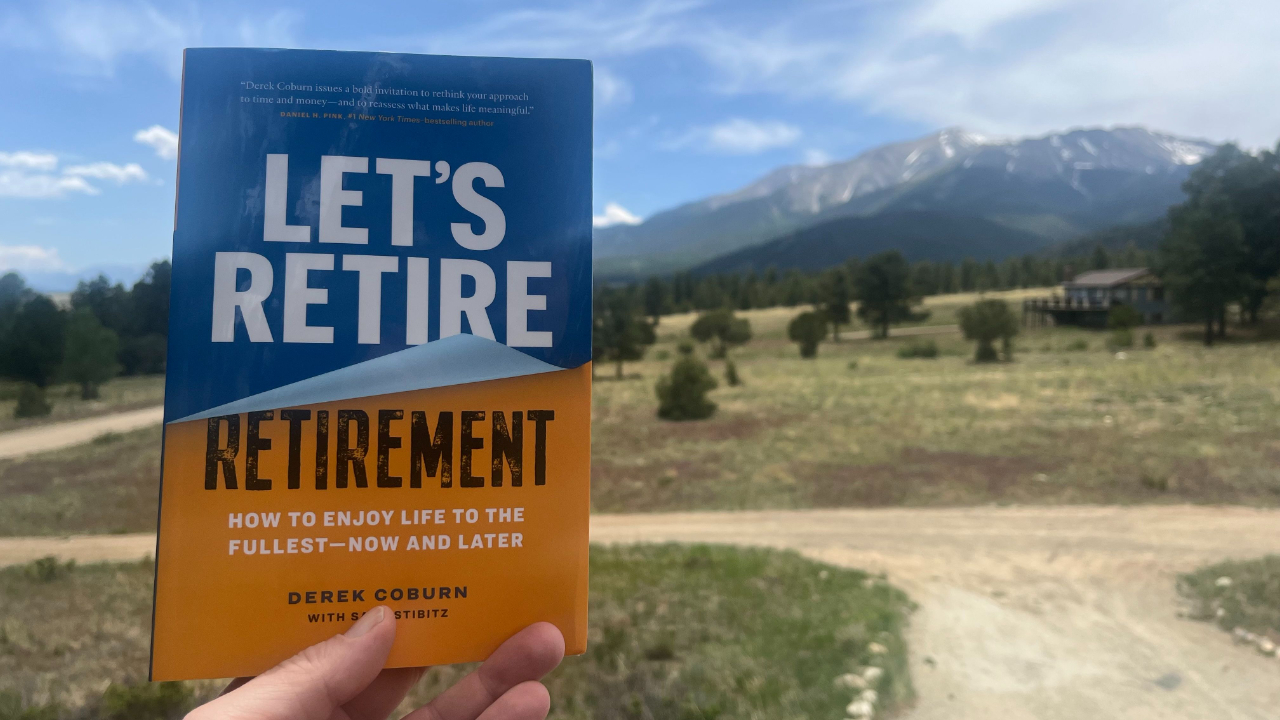
Guys—this is a bestseller for a reason. It’s different. Unique. Game-changing.
Derek Coburn’s Let’s Retire Retirement isn’t just another retirement book—it’s a bold redefinition of what it means to live a fulfilling life at any age.
With wit, wisdom, and compelling storytelling, Coburn challenges the outdated idea of retirement as a finish line. Instead, he champions a life of purpose, meaningful work, and relationships that grow with you.
Through surprising historical insights, practical strategies, and raw honesty, he shows how to design a future where work becomes a source of joy and impact—not something to escape. His take on financial independence is refreshingly human—centered on freedom to pursue what matters, not just hitting a number.
Coburn also elevates the role of relationships—not just for networking, but for building a life of connection, collaboration, and meaning.
If I were to title this book, I might call it Smart Retirement—but Let’s Retire Retirement says it bes...

